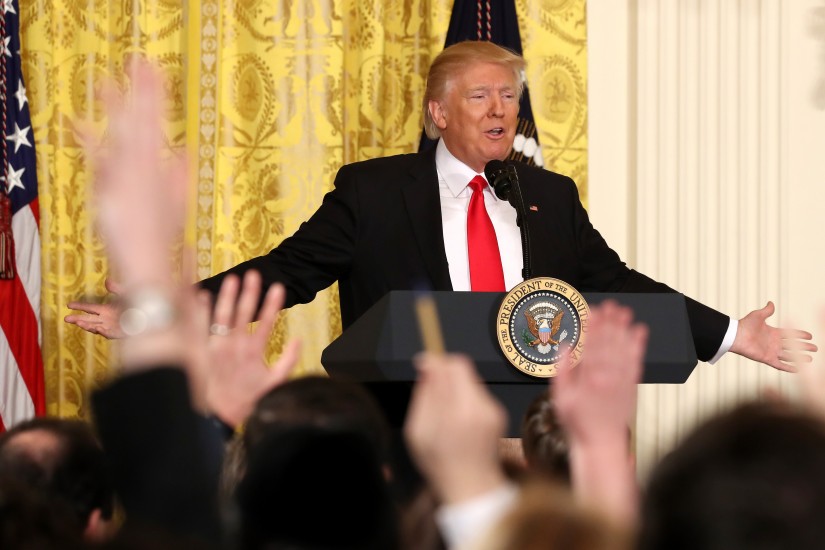Trump’s aggression has lit conflicts between the president, his party, and the very structures of government he now leads. Trump is not, however, the architect of this adversarial approach. Instead, his political ascendancy is a product of a conservative campaign to undermine trusted institutions and create an alternative system of knowledge about how government operates.
Over 50 years ago, conservative elites began harnessing and deploying political power outside electoral politics. Business owners, media activists, and intellectuals developed new sources of authority to challenge trust in mainstream media, universities, political parties, even the government itself. Conservatives’ alternative organizations slowly undermined the legitimacy of legacy institutions and, with it, Americans’ confidence in them.
In the process, they rewrote accepted truths and expectations for how government should function. In creating these new sources of authority, elite funders both bolstered their business and maintained control of their message. Until now.
In Messengers of the Right, Nicole Hemmer presents a captivating exploration of the first generation of media activists who used their networks and communication skills—developed at publishing houses and magazines, in radio and television—to forge a movement. These men came from positions of privilege. Their backgrounds ranged from academic administration to successful businesses to work with the Federal Bureau of Investigation. But they were bound together as ideological outsiders in their commitment to libertarian principles, as well as their opposition to Cold War intervention and the growth of the federal government.
As a result, they were “on the losing side of politics” in the postwar era. Why?, asked publisher and organizer Henry Regnery, when he convened a meeting of the brightest conservative minds in 1953. Because, he explained, “the left controlled institutions: the media, the universities, the foreign policy establishment.”
In their quest for political clout, these activists developed their own platforms to disseminate perspectives that had been silenced by these institutions. They created a range of products—journals, books, radio, and then television shows—to reach the public. The goal: to challenge the “reigning intellectual orthodoxy,” which celebrated the positive role of a technocratic state and an interventionist government at home and abroad.
